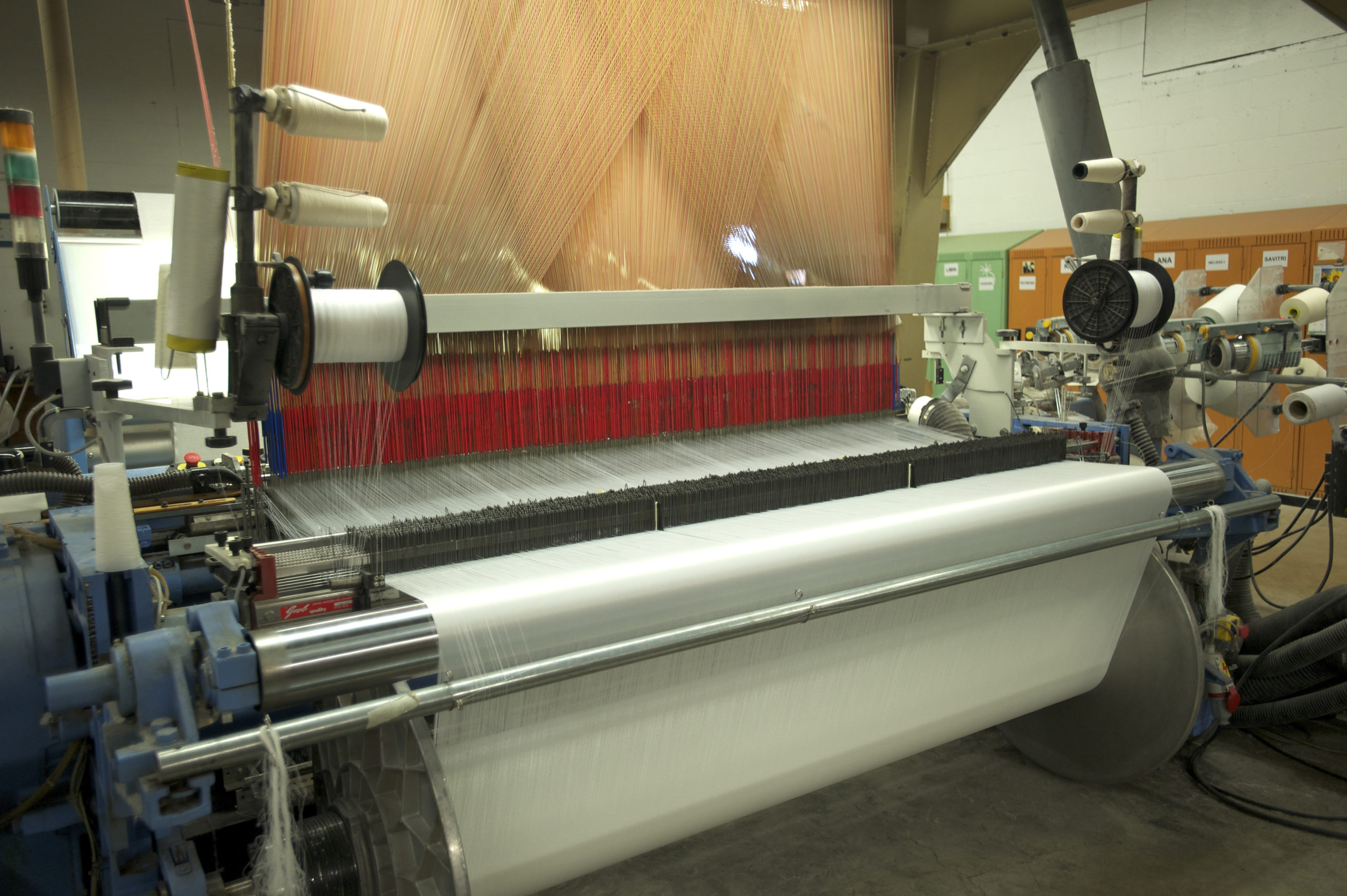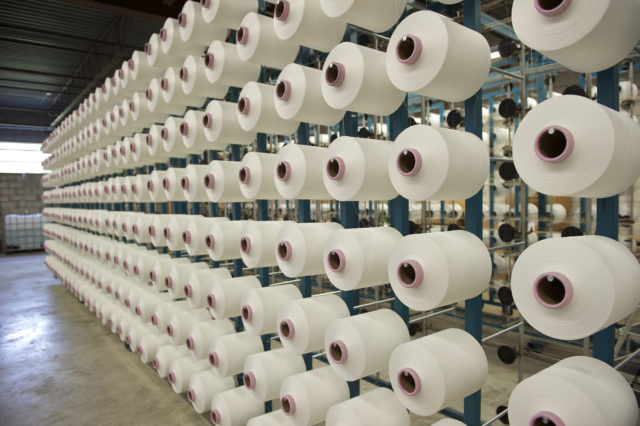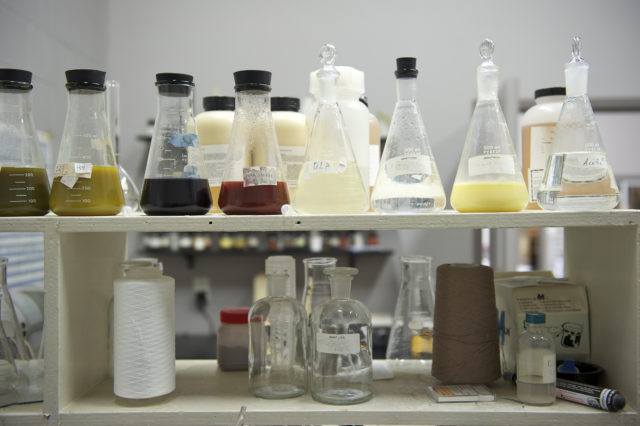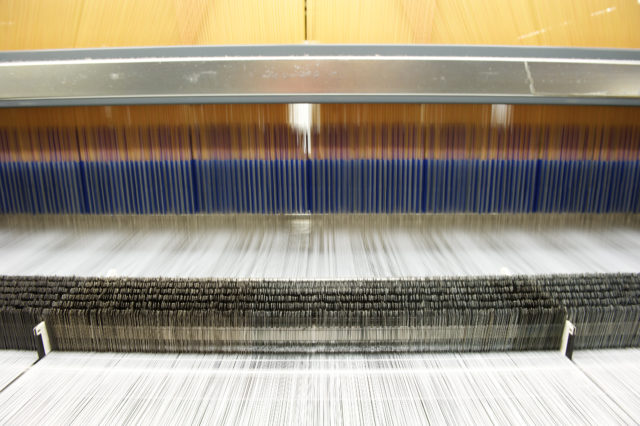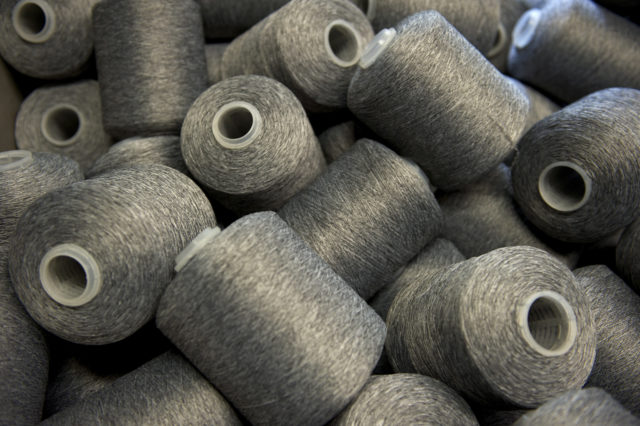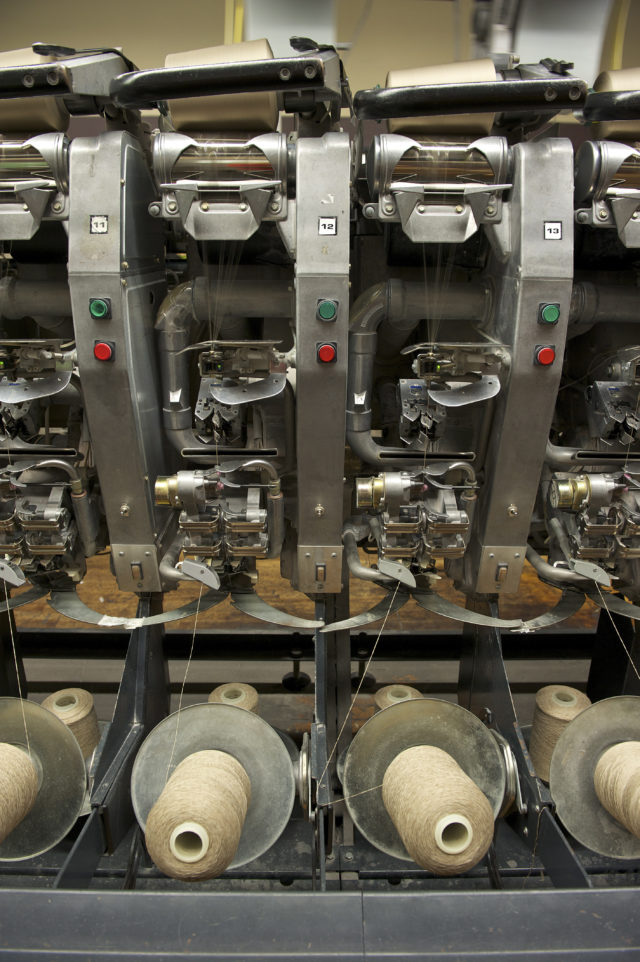-
Headquarters -
291 Elgin Street N, Cambridge, Ontario, N1R 5E8
-
Year established -
1963
-
NAICS -
313210 - Broad-woven fabric mills
-
Major expansions -
1974
-
Employees -
80
-
Exports -
US
-
Download -
MW Canada
Established in Montreal in 1963, MW Canada is a vertically integrated manufacturer of high-quality wholesale textiles, operating within a niche market and investing heavily in its workforce and manufacturing technology.
Cambridge, Ontario was once a major hub for Canadian textile manufacturing, home to some of the largest textile producers in the nation. Although manufacturing is still the largest sector in the area, the main focus has shifted to automotive production and advanced automation systems, among other industries, while textile manufacturing has seen a steady decline in Cambridge over the past several decades. Bucking this trend, however, is Montreal Woollens Canada Ltd. (MW Canada), a vertically integrated mill which has grown a strong wholesale export business focussed on decorative window fashion fabrics, insulated by a business strategy that emphasizes technological innovation and heavy investment in its workforce.
MW Canada’s founder, Charles Berger, immigrated to Canada following World War II and initially found work as a weaver for West Coast Woollen Mills in British Columbia. Shortly thereafter, Berger began pursuing a degree in textile engineering, which opened up the opportunity to become a textile sales agent in Eastern Canada. After building experience in the industry, Berger and his father, Eugene Berger, founded MW Canada in 1963 to import and sell high-quality Italian textiles. They soon decided to make the fabric themselves and opened a small production facility in Montreal, Quebec. In 1974, the Bergers purchased a large facility in Cambridge, Ontario. By 1977, MW Canada’s Montreal facility was shut down and all operations were transferred to its Ontario location, with many workers choosing to relocate with the business. When Charles passed away in 1997, his son, Robert Berger, assumed the role of CEO.
MW Canada has carved itself a niche by focusing its production on wholesale material for decorative window coverings. Although the firm is capable of making many different types of textile products, operating in such a specialized market shields the business from harsh competition with low-cost foreign producers. MW Canada dyes all of its own yarn in-house, some of which, is further processed into specialty entangled yarn, which creates a range of unique colours and textures. These processes de-commodify the fabric and enables the business to be a strong exporter within its niche market. Additional properties can be instilled into the fabric through a range of different processes. Instilling properties like rigidity, opaqueness through to blackout, fire resistance, antimicrobial, and antibacterial properties are the norm. Ninety-seven percent of all sales are exported, a majority of which are to U.S.-based multinational companies.
MW Canada produces a wide range of fabrics that offer various combinations of textures, colours, and designs. The firm’s looms have a high degree of technical specificity, allowing them to insert any type of design into the woven fabric. It can take 24 to 36 months for a new fabric to reach the end-consumer marketplace, so MW Canada must stay at the cutting edge of design trends in order to remain current. Many of MW Canada’s customers make window coverings for luxury housing, where windows are trending larger. This has increased demand for wider cuts of fabric, requiring the firm to replace its equipment with machines that can create and manage larger dimensions of material.
The firm uses 40 automated looms which weave fabric at speeds of up to 800 revolutions per minute.
Despite MW Canada’s standardized setup, it can take up to six months to fully configure a new loom. The firm has spent significant time carefully planning the setup of its equipment to maximize production efficiency. For example, setups have been standardized which provides the company with the flexibility to run a style on any number of machines, with changeovers requiring only minutes of paused production. Such a quick turnover of product allows MW Canada to offer a 50-metre minimum order size—much smaller than most other textile manufacturers. This feature helps the firm secure orders from small mom-and-pop customers with small orders.
As part of its efficiency efforts, MW Canada has adopted several green initiatives to reduce the amount of energy used and waste produced. In 2011, the facility installed a rooftop solar system that covers one-third of its energy needs. The firm has also implemented a solar heating recovery system and upgraded its lighting system, further reducing the amount of energy needed. Advanced recycling programs have reduced the firm’s landfill waste by 90 percent, water consumption by 50 percent, and salt consumption by 75 percent.
Given the diminished number of textile manufacturers in North America, MW Canada does all its production preparation and maintenance in-house. MW Canada keeps few types of yarn as inventory, with the majority being undyed white yarn. This gives the company the flexibility to process it as required. The company also has an in-house machine shop, allowing it to undertake its own repairs.
MW Canada continues to grow as a vertically integrated mill. Recently, one of the MW Canada’s suppliers—a manufacturer of ladder tape for venetian blinds— went out of business. MW Canada has since purchased this supplier’s equipment and begun making the ladder tape itself.
Much of MW Canada’s equipment has been automated to the point that the machines can automatically detect and fix production irregularities, such as knots in the yarn. Automation and process efficiency is crucial in keeping the firm as competitive as possible, which is especially important considering the significant labour constraints.
MW Canada looks to its employees for troubleshooting and insight into process improvements. However, like many manufacturers (especially within the textile industry), its main challenge is attracting skilled workers. When the broader textile industry shifted production overseas, many skilled weavers left the industry through attrition, leaving few qualified workers available in Canada. MW Canada was able to attract laid-off workers from several of its competitors when they closed operations, but now that it is one of the only remaining textile manufacturers in the area, it has a much harder time attracting qualified candidates.
To address this deficit, MW Canada has developed a comprehensive continuing education program that is administered and managed by a full-time staff member.
Workers are required to attend at least two hours of paid training per month, allowing them to continuously expand their skill set not only to meet the company’s present needs but also in anticipation of future labour requirements. MW Canada’s training program also helps workers to develop personal skills, offering course content on topics such as English-language proficiency and General Education Development (GED) preparation. Robert Berger believes that investing in workers in this way keeps their skills ahead of the curve and boosts their self-esteem and commitment to the company.
In addition to recruitment challenges, MW Canada also faces many regulatory hurdles. For example, Ontario manufacturers are subject to some of the most stringent electrical standards in the world. Due to this, MW Canada is often required to rebuild imported machinery, which can be an expensive and time-consuming process. Its latest piece of equipment sat idle for 16 weeks while awaiting approval from a provincial inspector, despite being the same model as other machines the firm has already had approved and currently uses in production. MW Canada regularly invites local political candidates to tour the facility to gain a better understanding of the unique challenges facing the Canadian textile industry.
Though the firm is successful in its niche, management realizes that vast new opportunities will soon arise in the field of technical textiles. To this end, MW Canada has formed many partnerships with universities, research organizations, and technology firms to begin developing a portfolio of textiles with advanced technology integration. For example, the firm is working with researchers to develop window coverings with built-in photovoltaic cells and batteries, allowing the coverings to generate solar energy. In addition, MW Canada is developing coverings that interact with digital infrastructure, with potential applications such as blocking nefarious short-range signals from hackers or enhancing 5G connectivity for a building. Many of these projects are long-term and face significant barriers to implementation; however, if successful, they would push MW Canada to the forefront of the technical textile industry.
MW Canada has succeeded due to its ability to anticipate and adapt to industry trends. The firm’s ability to rapidly adapt to a changing environment has proved to be extremely important in the midst of COVID-19. In response to the pandemic, MW Canada has successfully retooled to manufacture high-performance medical fabrics being used in surgical and isolation gowns. With a strong emphasis on long-term employee training as well as on substantial research and development, the family-run firm could soon be leading a resurgence in North American textile manufacturing.
For more information about MW Canada, visit their website.
Published: June 2, 2020
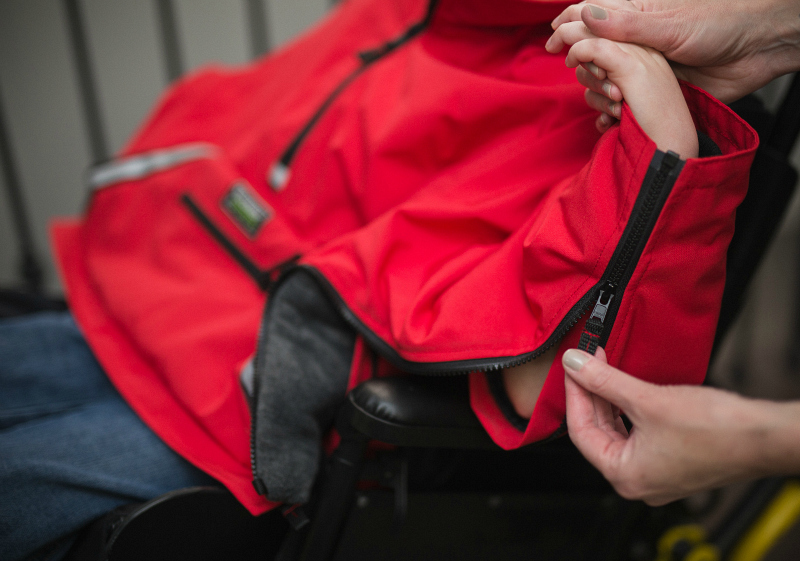
Koolway Sports
Koolway Sports designs and manufactures custom, high-quality, adaptive outerwear for individuals with disabilities, specially designed to be easily worn in conjunction with pieces of adaptive equipment, such as wheelchairs.

Creative Education of Canada
Creative Education of Canada manufactures educational toys and costumes for children. Most notably, the firm produces Great Pretenders’ award-winning dress-up costumes.
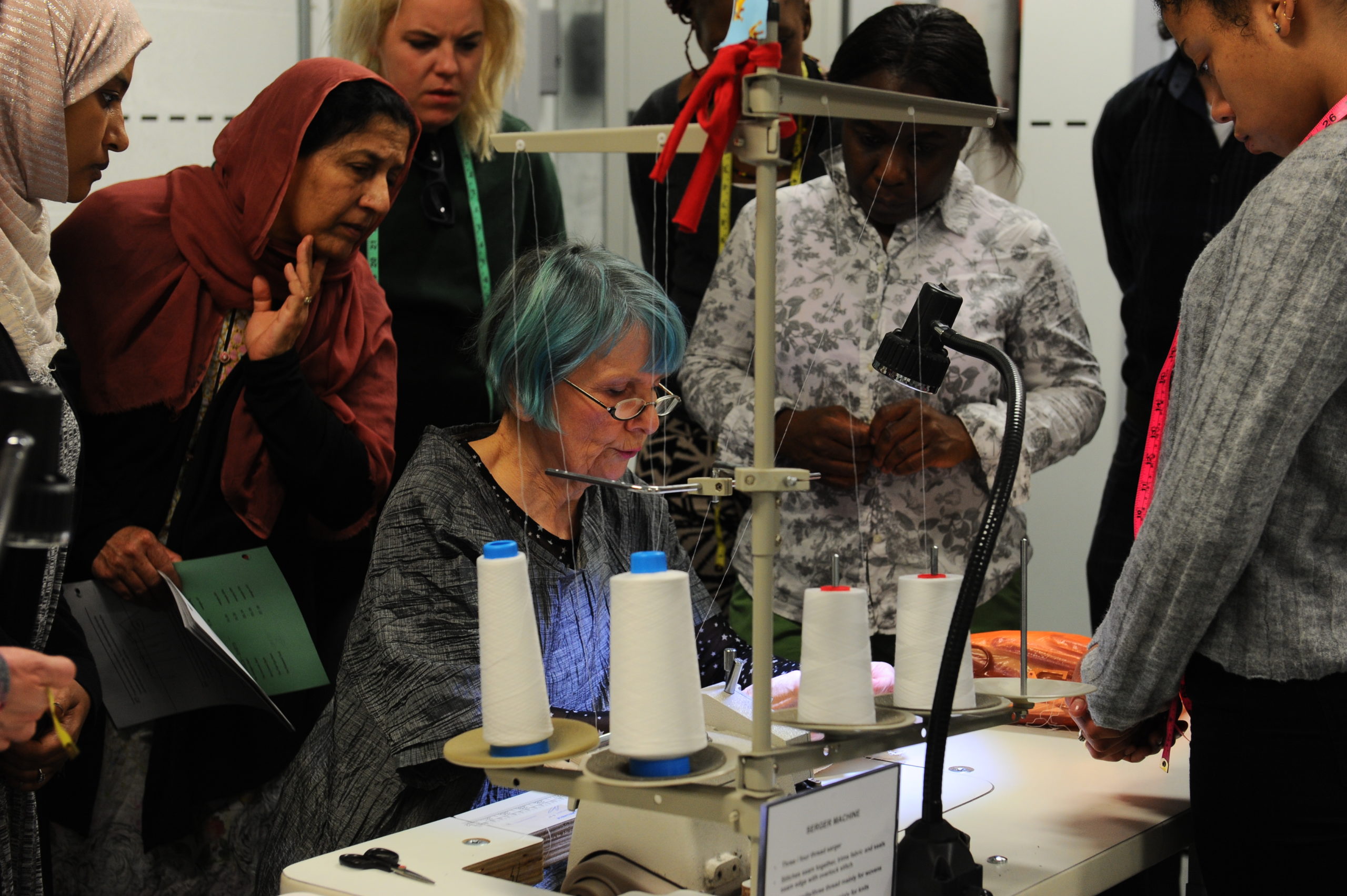
George Brown College Fashion Exchange
College’s Fashion Exchange (GBFX) fosters collaboration between fashion educators, industry partners, community organizations, and fashion graduates.
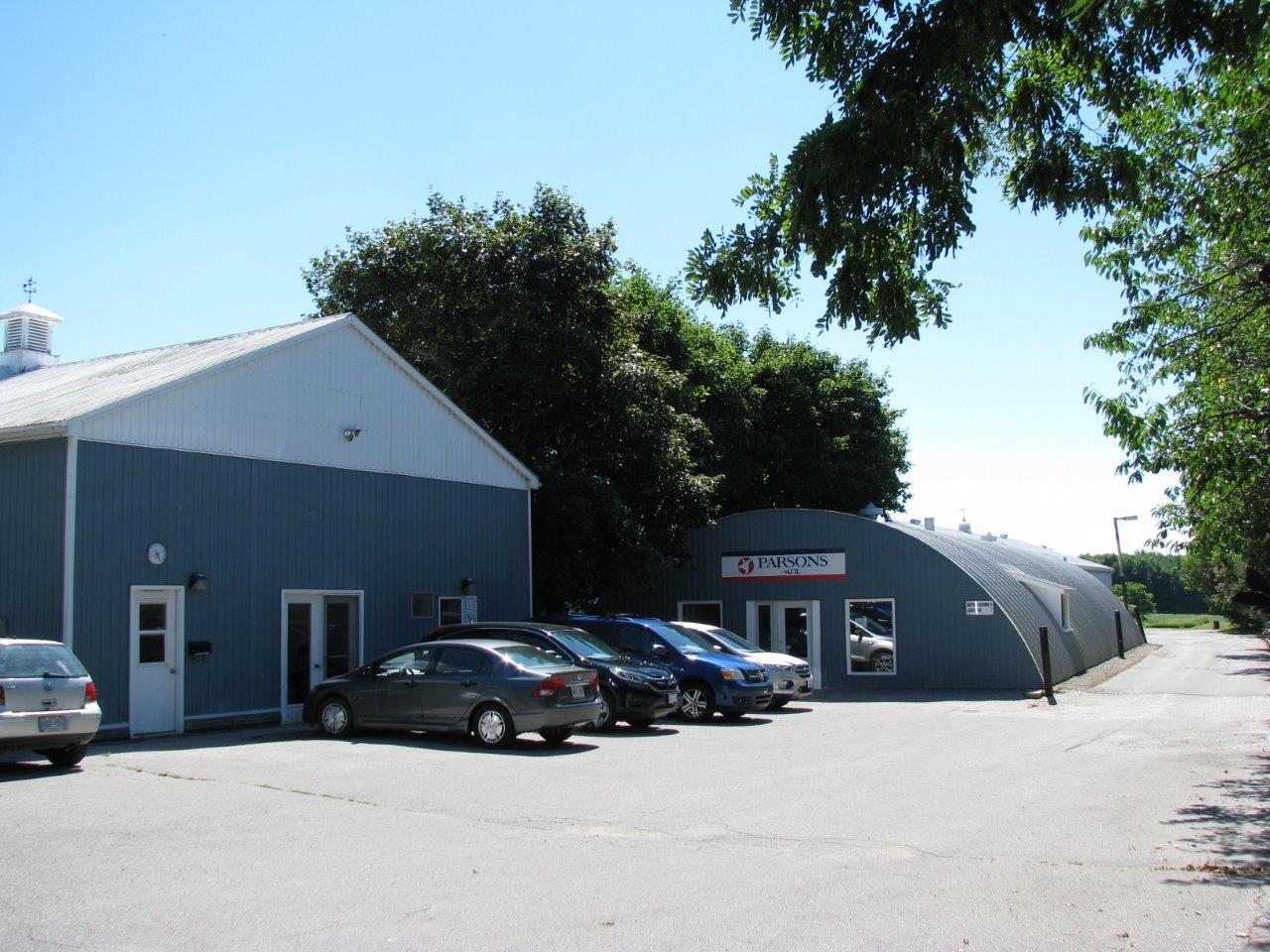
Parsons ADL
Located in New Tecumseth, Ontario, Parsons ADL is a manufacturer of home health care products. The company strives to create innovative solutions that will help improve the quality of life for the ageing population, as well as individuals with disabilities.

Mabel’s Labels
Founded by 4 moms, Mabel’s Labels designs, manufactures, markets and distributes personalized name labels and tags for children’s belongings. It is the creator of the market, and its leader.
